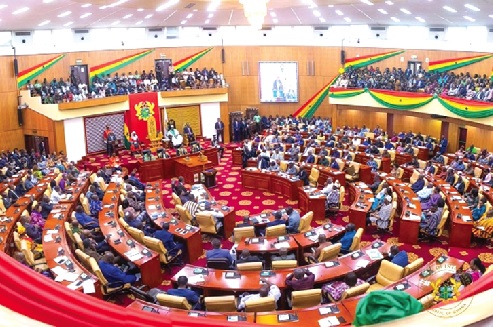Honour: Critical ingredient in Ghana’s development trajectory
The European Regional Director for the World Health Organisation (WHO) at the 2023 World Health Summit in Berlin said: “The world has lost trust in each other – or even the benefits we will reap if we rebuilt trust.”
Honour, respect
Respect is giving reverence to someone because he/she meets your standards while honour, on the other hand, is giving reverence to someone, whether he/she meets your standards or not; you continue to revere that person.
Honour is an abstract concept inseparable from human society and human civilisation. For most societies, we tend to believe that having good laws and an efficiently policed and efficient market is all we need to thrive.
In Edward Gibbon’s book, “The Decline and Fall of the Romans”, it is aptly captured that the gradual loss of civic virtues made the decline possible.
Chinese model
Taking a critical look at Chinese history, one will find that it was the Qin Dynasty, founded by Qin Shi Huang, that marked the end of the warring states, when various states used to battle for dominance over each other.
All the different states were somehow autonomous during that period. The Qin dynasty lasted for only 15 years, from 221 BCE to 206 BCE.
He managed to unify China and laid the foundation for China’s future dynasty. He adopted legalism as the guiding philosophy, emphasising strict laws and harsh punishment to maintain order.
However, this period was short-lived and it collapsed in 206 BCE. The Han dynasty founded by Liu Bang (later Emperor Gaozu) followed the Qin dynasty.
Historians attribute this period as the golden age of Chinese civilisation. The Han dynasty was based on civic virtues (Confucius principles) combined with some elements of legalism.
This was the period when the Chinese territory expanded and the silk trade routes developed. These routes could go as far as India and the Roman Empire.
From the establishment in 206 BCE to the final collapse in 220 BCE, the Han Dynasty lasted approximately 426 years, excluding the brief Xin Dynasty interregnum. This period lasted far longer than the Qin Dynasty, which lasted 15 years. Today, the Chinese people refer to themselves as the “Han ethnicity” underscoring the dynasty’s lasting influence.
Clearly, in national development, history has shown that civic virtues are what can ensure the growth and sustainability of the nation. Where are we in Ghana?
According to the 2024 Afrobarometer report, trust in key state institutions and officials has seen a major drop.
It also indicates a troubling erosion of public trust in critical institutions including the judiciary, tax authorities, the presidency and parliament, with heightened scepticism towards officials perceived as corrupt.
Recently, I had a conversation with a group of tertiary students and posed the question: What is the Ghanaian dream? The whole class shouted, “To leave the country!”
Clearly, some of our young people are disillusioned with the current trajectory of our nation. We have placed a heavy emphasis on our constitution as our social contract.
We are all seeing the current happenings in Parliament. Despite the ruling of the Supreme Court, the parties involved still have reservations. Clearly, trust seems to have been broken somewhere.
Codification of national values
In China today, the law is subservient to the rules of proper behaviour (Confucius principles). Whenever they have issues in China with the law, the law gives way to the rules of proper behaviour.
What are our national values in Ghana? We have different ethnicities with values across the board. However, we have not codified our national values.
This is something the National House of Chiefs and the Council of State need to be concerned about. We need a codified national value that should guide us as a nation.
As I stated at the beginning of this write-up, the fall of the Roman Empire was due to a decline in civic virtues.
We need to prevent a fall in Ghana. We need conscious efforts to uphold our national values now or never.
An “Honour movement” will be critical to our national survival. As was said by Pope Francis: “Every saint has a past and every sinner has a future”. We can all move on and become saints with time.



